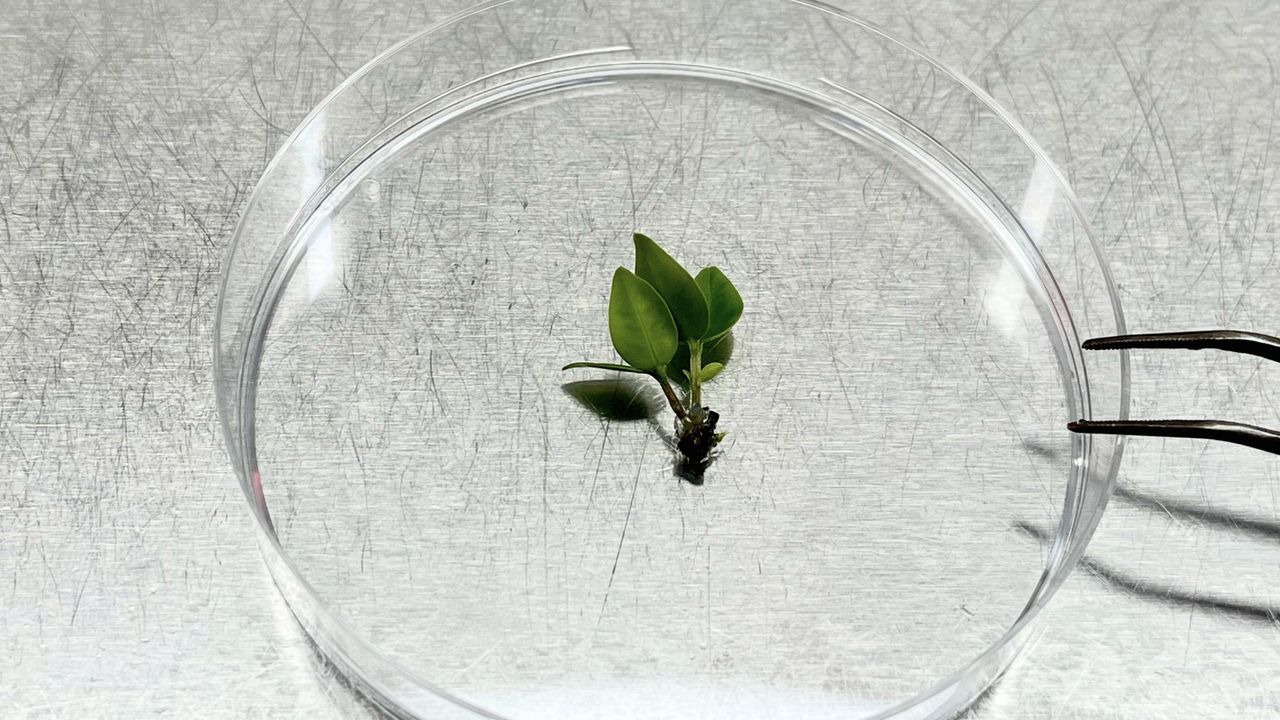Now Reading: Scientists Rush to Cryopreserve Endangered Tree Facing Extinction
-
01
Scientists Rush to Cryopreserve Endangered Tree Facing Extinction
Scientists Rush to Cryopreserve Endangered Tree Facing Extinction

Quick Summary
- Scientists in Australia are cryopreserving shoot tips of the critically endangered angle-stemmed myrtle (Gossia gonoclada) to safeguard its DNA against extinction.
- Only about 380 specimens of this tree remain in the wild, with nearly 300 concentrated in southeast Queensland’s City of Logan area.
- The species faces threats from habitat loss, climate change, and a fungal disease called myrtle rust caused by Austropuccinia psidii.
- Cryopreservation involves freezing plant tissues at minus 321°F (-196°C) after applying a protective solution to prevent ice damage. This method has successfully regrown related species like sweet myrtle (Gossia fragrantissima).
- Researchers aim to save sufficient genetic diversity to ensure survival and potential breeding programs for tolerance against diseases or climate shifts.
- Efforts are ongoing with local authorities and partners to identify resistant specimens; though,no resilient specimens have been found so far.
- Scientists stress the need for global cryobanking initiatives to protect foods and endangered plants for future generations.
!Lab image showing cultures of Gossia gonoclada
Indian Opinion Analysis
India, as one of the biodiversity hotspots globally, can draw valuable lessons from these conservation efforts. While India’s flora includes many endemic and vulnerable species that face threats similar to habitat loss or invasive pathogens as seen with the angle-stemmed myrtle in Australia,advances like cryopreservation offer promising tools for safeguarding plant diversity effectively. With rapidly changing environmental conditions caused by factors such as deforestation or urban expansion, proactive measures modeled on scientific approaches such as this could help India secure genetic safety nets for its own disappearing native species. Importantly, collaborating across national borders and dedicating resources towards creating “cryobanks” could foster stronger conservation frameworks-not only preserving vital ecosystems but perhaps aiding food security during future uncertainty.Encouraging innovation through research institutions exemplifies how nations can collectively address critical ecological challenges responsibly without compromising biodiversity protection priorities.

























